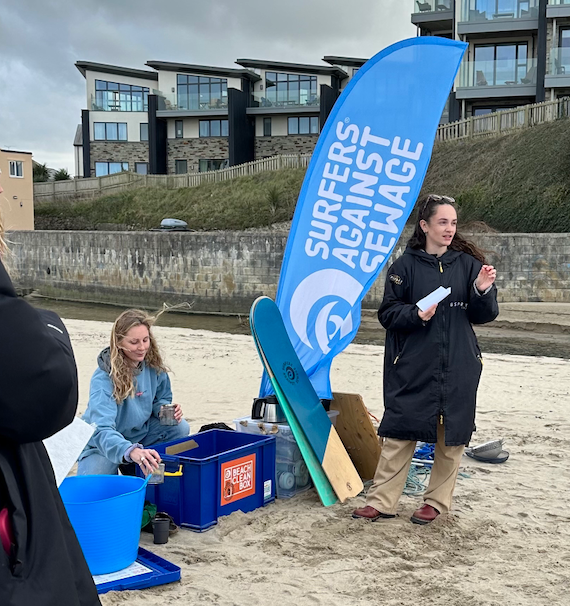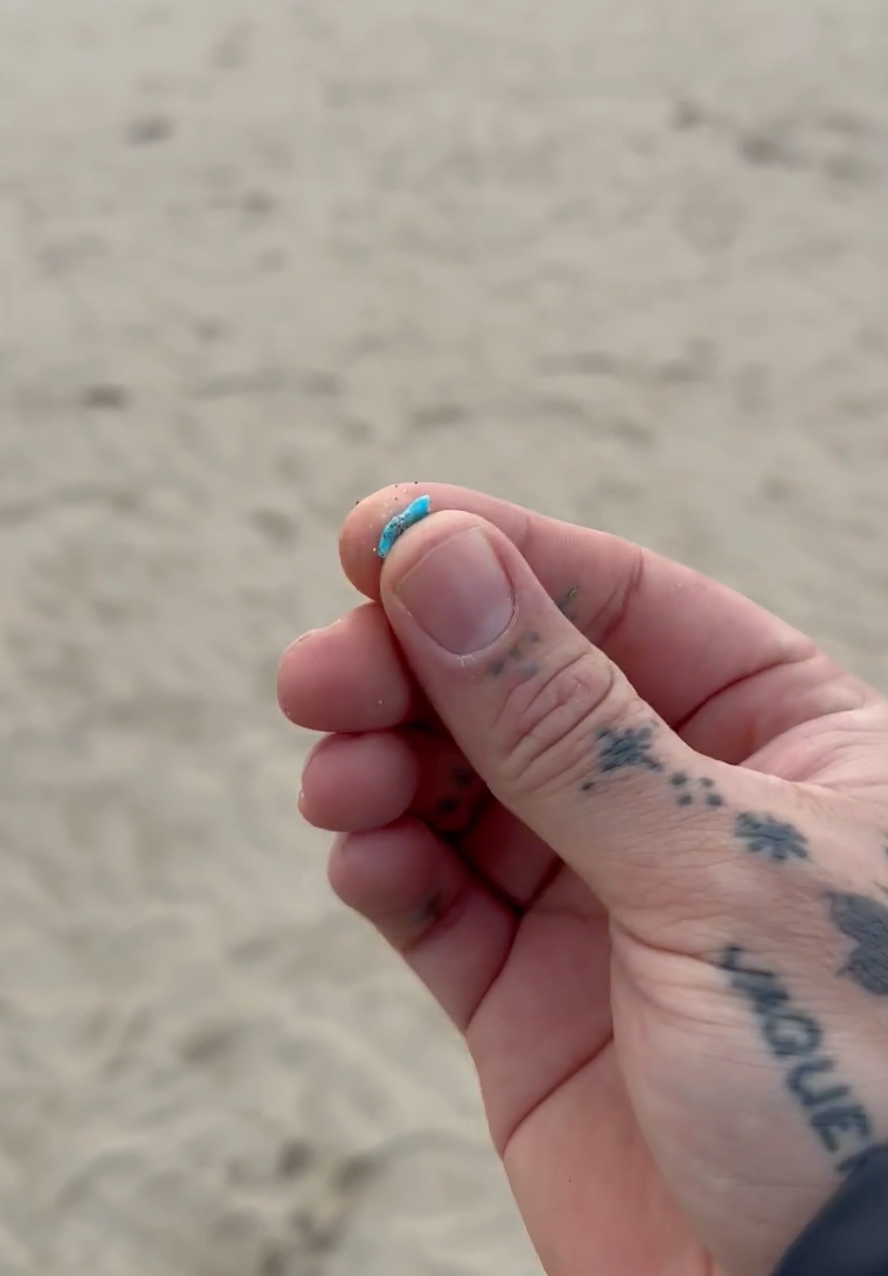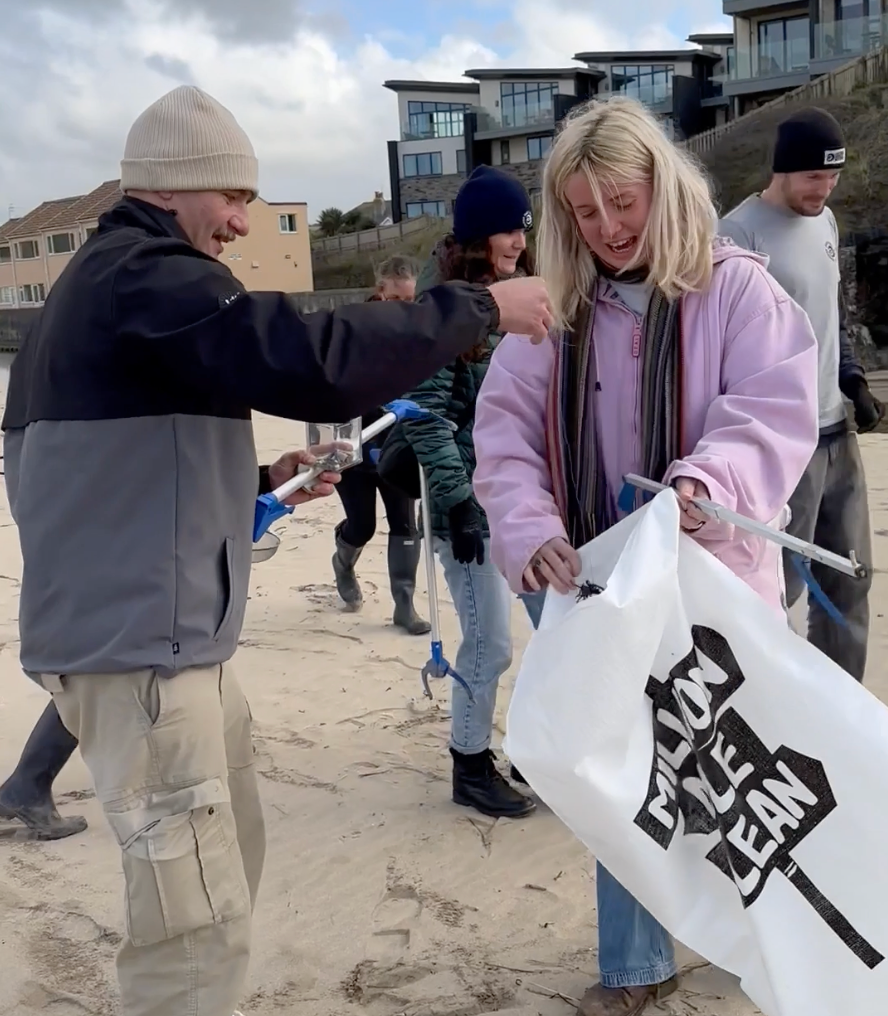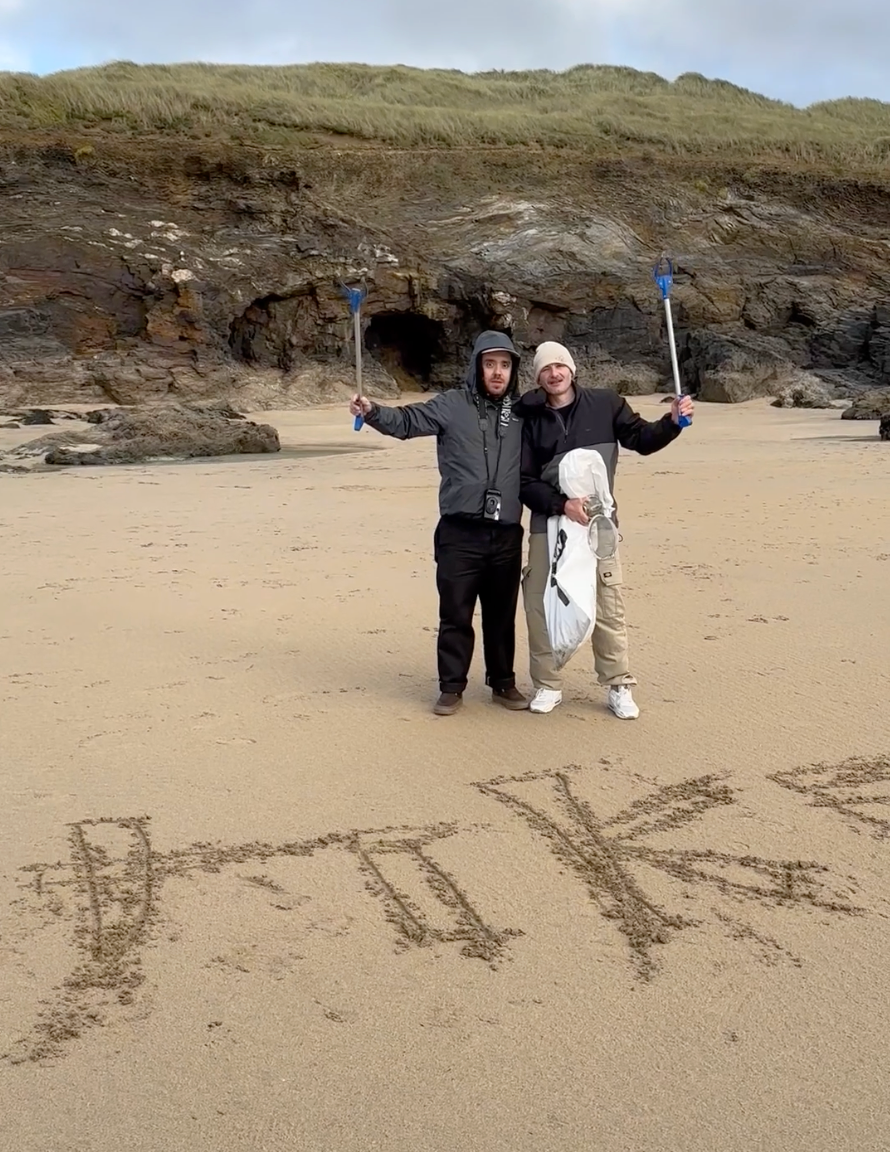Cart
Your cart is empty
Environmental sustainability has been a hot topic for some time now. But in a world where greenwashing, carbon offsetting, and missed emissions targets are commonplace, do organisations truly care about our planet? Have we all become a bit fatigued and confused about the correct approach to sustainability?

Surfers Against Sewage (SAS) is a charity that certainly does care. Based in Cornwall, this organisation has spent over 30 years protecting our coastlines. What began as a group of local surfers frustrated with paddling through human excrement has grown into a powerful movement that holds water companies accountable and advocates for protecting our ocean's environment.
The team at Tiki Surf joined SAS for a day of beach cleaning at Perranporth Beach, contributing to their ambitious Million Mile Beach Clean-Up and gaining insight into the devastating impact of plastic pollution.
It was a windy day, and the surf was too choppy to distract us from our primary goal – being the team that collected the most plastic! Our first impression upon seeing the beach? "There’s nothing to clean!" It’s a testament to the hard work that's been done on raising awareness that, at first glance, our beaches appear cleaner than they were a few years ago. Sadly, this doesn't tell the whole story.

After meeting the SAS team and other partner organisations supporting the beach clean-up (shoutout to the team at Yallah Coffee and The Exploding Bakery for the energy-boosting coffee and cake supplied!), we listened as Paula and her team described the severity of plastic pollution and the challenges we face.
Next time you visit a beach, pick a patch of sand and take a closer look. You’ll likely see tiny, colourful plastic fragments, known as nurdles or microplastics, scattered everywhere. Microplastics are formed as larger plastic waste, discarded over the past century, breaks down and is carried by ocean currents to even the most remote areas of the planet—including Antarctica. Nurdles, on the other hand, are raw plastic pellets used as the building blocks for various plastic products. Billions of nurdles are shipped worldwide, but when a shipping container spills, these pellets scatter across the ocean, eventually washing up on beaches or being ingested by marine wildlife. These particles enter the food chain and, ultimately, our bodies. Nearly every human organ now contains microplastics, posing unknown risks to health.
So, armed with bags, sieves, and the famous “can-do” Tiki Surf attitude, we combed the beach. In just over an hour, we had filled our jars with microplastic fragments, though it felt like we’d only scratched the surface. While the scale of the problem could be disheartening, the upbeat atmosphere made it a fun and memorable experience.
After weighing our collected plastic, the Tiki Surf team took home the prize for being the best plastic picker-uppers (it was never in doubt...) Paula then held a short workshop on the critical roles organisations play in combatting plastic pollution, and it made me reflect on what the surf industry, an industry that relies on the ocean, is doing to protect it.

The good news is – we are making progress. Companies like Patagonia, Billabong, and O’Neill are moving away from neoprene in their wetsuit manufacturing. Check out our range of sustainable wetsuit options. We’re also thrilled to announce that Tiki Surf is developing its own sustainable wetsuit line, set to launch next year!
Innovations such as bamboo cores and hemp fibreglass are reshaping eco-friendly surfboard manufacturing. On the clothing side, brands like Outerknown and UK-based BambooBay are making strides in using ethically sourced, recyclable materials.

The honest answer is, probably not. While the private sector has its own pressures to prioritise profits, efforts like this beach clean-up remind us of the importance of corporate responsibility. Attending events like this helps bridge the gap, even as we recognise the ongoing need for improvement.
Still, every effort counts. If each of us takes a little more responsibility—making mindful choices, supporting eco-friendly brands, or volunteering—future generations may continue to enjoy the beaches we love.
Stay tuned, as Tiki Surf and SAS have exciting sustainable product collaborations launching next year. Until then, if you’d like to support the Million Mile Beach Clean-Up or explore becoming a partner, click here.